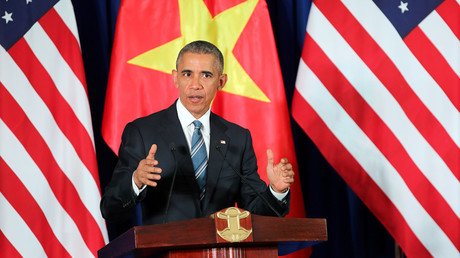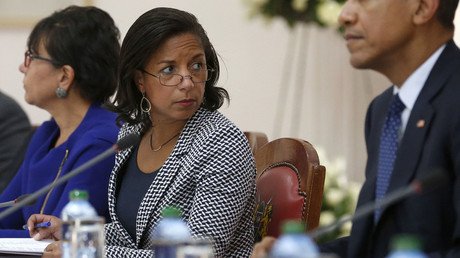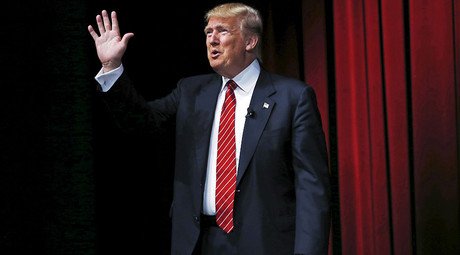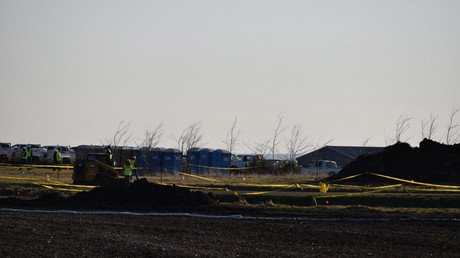$15b or else: TransCanada files NAFTA appeal over Keystone XL failure
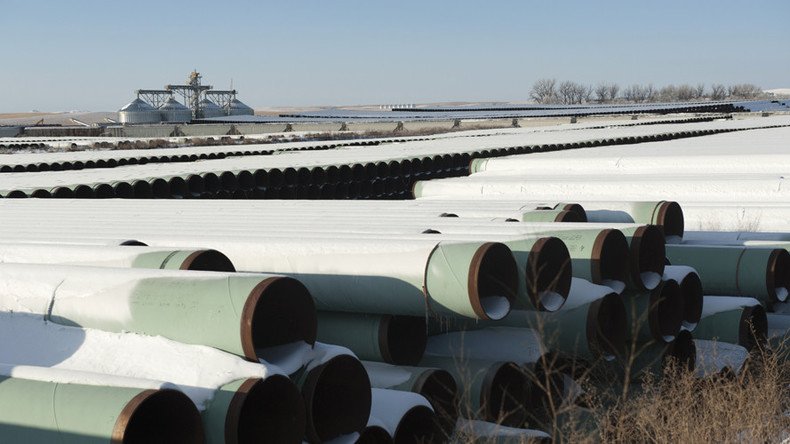
Seeking $15 billion in damages, TransCanada Corp has requested arbitration under provisions of the North American Free Trade Agreement (NAFTA) over the Obama administration's rejection of the Keystone XL crude oil pipeline.
TransCanada officially filed a formal arbitration claim on Friday to recoup what it says are damages and costs it incurred from the Obama administration's November 2015 decision to block a section of the company's Keystone XL pipeline, which was planned to transport crude tar sands oil through the US, from the Canadian province of Alberta to the Gulf of Mexico.
The company submitted a notice for arbitration in January, but has not been able to reach a settlement with the US government.
"Unfortunately, the parties were unable to settle the dispute," TransCanada said.
TransCanada with a timely reminder of why we should oppose TPP. #cdnpolihttps://t.co/2u257zJxls
— Derrick O'Keefe (@derrickokeefe) June 25, 2016
Under NAFTA guidelines, corporations – or "NAFTA investors" – can challenge a host government over settlement and investment disputes before a panel. TransCanada is appealing pursuant to Chapter 11 of NAFTA.
"Pursuant to the NAFTA, the Parties [Canada, Mexico, and the United States] have established several rosters of individuals from which panelists are appointed to settle disputes," NAFTA's website explains.
"Members of these rosters are of good character, high standing and repute and have been chosen strictly on the basis of objectivity, reliability, sound judgement and with a general familiarity with international trade law. Currently, there are NAFTA rosters (one per country) for Chapter 11 (Investment), Chapter 14 (Financial Services), Chapter 19 (Antidumping and Countervailing Duty Matters and Extraordinary Challenge Procedure) and Chapter 20 (Institutional Arrangements and Dispute Settlement Procedures)."
The NAFTA panels are similar to the proposals embedded in the controversial Trans-Pacific Partnership (TPP) trade agreement between 12 Pacific Rim nations – including all three NAFTA signatories – that is currently pending ratification. The TPP has been crafted largely in secret by the participating nations, as well as major corporate entities and investors.
Leaks of TPP drafts have indicated that the agreement will come with a private tribunal system called the investor-state dispute settlement (ISDS) process, in which multinational corporate entities will be granted broad powers to challenge sovereign nations' government regulations, rules, actions and court rulings if those laws or policies are perceived as cutting in on intellectual property values and profits.
Any economic benefits of the TPP will go to corporations, not workers in any of the participating nations, opponents say. Labor unions, among many others, have lined up to oppose the TPP based on concerns over a number of issues, including currency manipulation, environmental and health protections, food safety, pharmaceutical monopolies, offshoring of jobs, internet privacy, government transparency, and local governmental control.
The United Nations top human rights expert has called the TPP"fundamentally flawed" and "out of step with today's international human rights regime."
TransCanada is also suing the US government in federal court, calling for a reversal of the Obama administration's decision to block construction of the pipeline's final leg.
President Barack Obama rejected the pipeline for environmental and economic reasons, saying the "Keystone XL pipeline would not serve the national interests o the United States."
The pipeline would have moved as many as 830,000 barrels of oil a day over 1,700 miles from the tar sands in western Canada through six US states to Steele City, Nebraska, where it would have linked with existing infrastructure to bring the oil to refineries on the Gulf Coast.
“Shipping dirtier crude oil into our country would not increase America’s energy security. What has increased America’s energy security is our strategy over the last several years to reduce our reliance on dirty fossil fuels from unstable parts of the world,” Obama said in November.
